Nobel Prize for Physics 2018: Three scientists win for ‘groundbreaking inventions in field of laser physics’
Nobel Physics Prize 2018: “For groundbreaking inventions in the field of laser physics” the Academy awards one half to Arthur Ashkin and the other half jointly to Gérard Mourou and Donna Strickland.
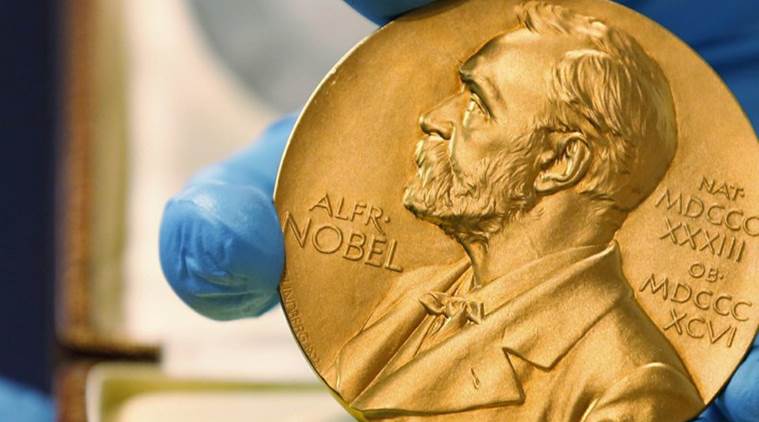
FILE- Nobel Prize in Physiology or Medicine, Physics, and Chemistry are conferred upon people who have excelled in the field of science. (AP Photo/Fernando Vergara, FILE)
The 2018 Nobel Prize for Physics was awarded to Arthur Ashkin as well as jointly to Gerard Mourou and Donna Strickland Tuesday for their groundbreaking discoveries in ‘laser physics’. Strickland became the third female Nobel laureate in physics.
Nobel Prize considered a pride to regard people who have made great advances and discoveries in different fields. Nobel Prize in Physiology or Medicine, Physics, and Chemistry are conferred upon people who have excelled in the field of science.
Watch the video here.
The winners will be awarded with nine million kronor (£770,000) which has been decided by the Royal Swedish Academy of Sciences. Among this year’s top contenders were scientists who worked on a technology which showcased the development of solar cells based on a class of mineral called perovskites, devices whose performance is on par with that of silicon solar cells, and which are less costly and energy-intensive to produce.
Another discovery touted to be a winner are scientists who have worked on quantum entanglement – which means that even when two particles are separated by vast expanses, they are still “in touch” with each other so by measuring the properties of one, the properties of the other are also known. This phenomenon was famously described by Einstein as “spooky action at a distance”.
The last Nobel Prize for Physics awarded to a woman was nearly 55 years ago, which was in 1963 to Maria Goeppert Mayer who was accorded a share of the prize for her discoveries around how protons and neutrons are arranged in the nucleus of atoms. Marie Curie remains the only other woman to have achieved the title back in 1903, and was one among the four winners that year.
Last year’s prize was awarded to the trio of Rainer Weiss, Barry Barish and Kip Thorne for their work which led to the detection of gravitational waves: ripples in the fabric of spacetime, produced during violent events, such as the merger of black holes.
For all the latest World News, download Indian Express App
© IE Online Media Services Pvt Ltd






















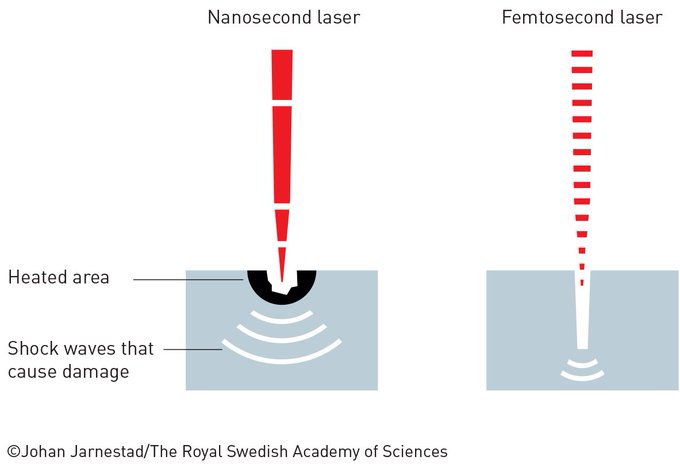
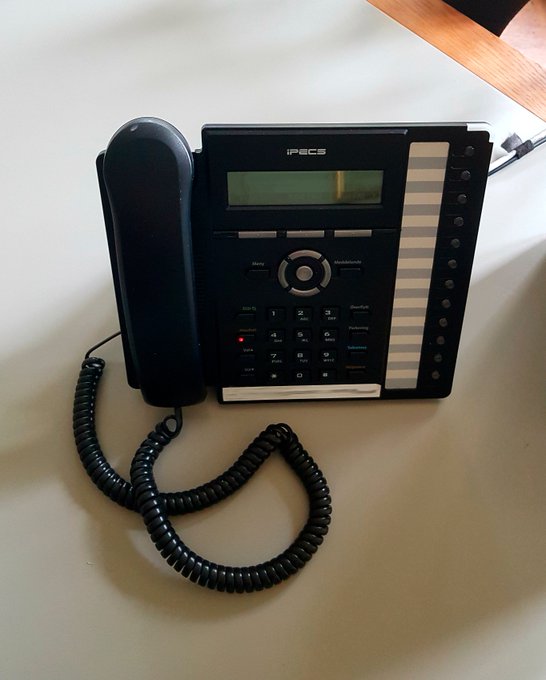
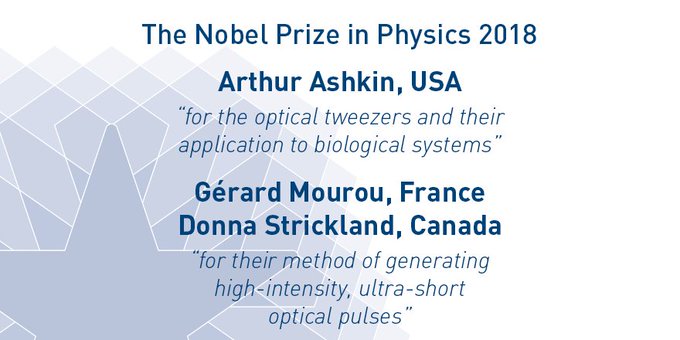
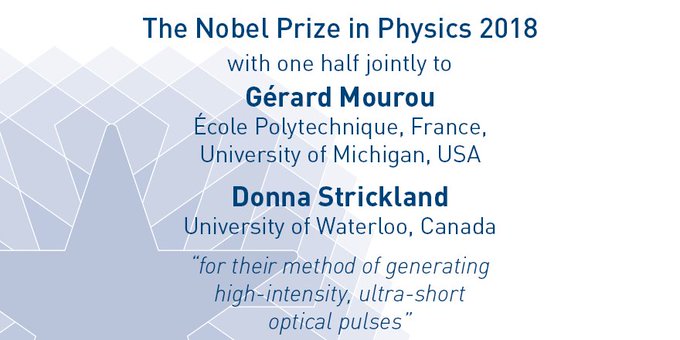
No hay comentarios:
Publicar un comentario